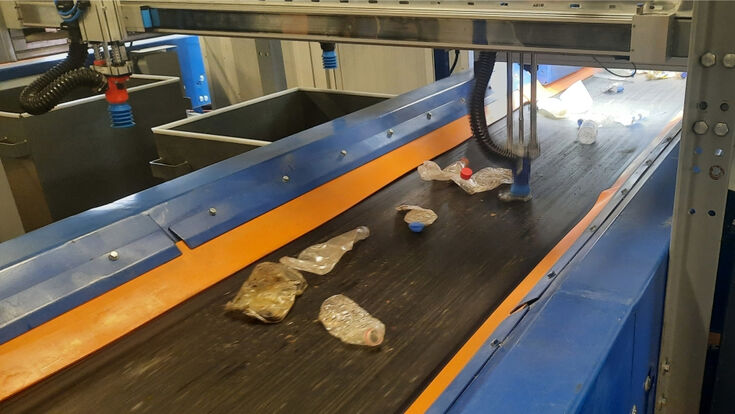Reclaim Waste Melbourne: Top Methods to Efficient Liquid Waste Removal
Wiki Article
Fostering Source Efficiency and Environmental Management Via Liquid Waste Elimination Programs
In the world of environmental stewardship, the administration of liquid waste stands as a critical time where resource performance and environmental management converge. Fluid waste removal programs play an essential role in securing our communities and ensuring lasting development methods. By diligently dealing with the disposal of fluid waste, industries and neighborhoods can not just minimize prospective dangers but likewise unlock possibilities for recycling and repurposing important sources. As we browse the complexities of waste monitoring in a rapidly evolving world, the harmony in between cutting-edge innovations, rigid policies, and forward-thinking techniques ends up being progressively critical. Via a lens of positive engagement and strategic insight, the landscape of fluid waste management unveils a tapestry of difficulties and opportunities that bid us to check out the path in the direction of a greener and more lasting future.Importance of Liquid Waste Elimination
The significance of liquid waste elimination hinges on its important role in maintaining ecological wellness and protecting public well-being. Liquid waste, if not effectively handled, can position major dangers to ecosystems, water resources, and human health and wellness. With efficient removal processes, hazardous compounds such as pathogens, contaminants, and chemicals are stopped from infecting the environment and triggering detrimental effects.Proper liquid waste elimination additionally assists in avoiding the spread of illness and minimizing the potential for groundwater contamination. By securely throwing away fluid waste, the threat of waterborne health problems and pollution-related wellness issues is substantially reduced - Industrial waste water treatment. In addition, effective removal methods add to preserving the general cleanliness and appearances of areas, thereby improving the high quality of life for citizens
Moreover, fluid waste elimination plays an important role in supporting lasting development and making certain conformity with environmental policies. By sticking to proper waste monitoring procedures, sectors and services can reduce their ecological impact and show corporate duty. Eventually, spending in durable liquid waste elimination programs is crucial for promoting environmental stewardship and fostering a healthier, safer future for all.

Advantages of Efficient Disposal
Effective disposal of liquid waste not just safeguards ecological health and wellness and public well-being yet likewise generates numerous advantages that prolong beyond prompt containment measures. Through processes like reusing and power healing, important resources can be extracted from fluid waste, promoting sustainability and reducing the pressure on raw materials. Overall, the advantages of efficient fluid waste disposal are diverse, encompassing ecological protection, source efficiency, and financial advantages.Technologies for Waste Treatment
Using advanced modern technologies for waste therapy plays a vital function in guaranteeing the effective management and secure disposal of fluid waste. One of the vital innovations employed in fluid waste treatment is organic therapy. This method makes use of bacteria to break down raw material in the waste, transforming it into safe by-products. An additional typical technology is chemical therapy, where chemicals are contributed to the waste to counteract damaging components or precipitate impurities for removal. Physical therapy techniques, such as purification and sedimentation, are likewise extensively utilized to divide solids from liquid waste.In addition, thermal treatment methods such as incineration can be used for the complete damage of unsafe components in liquid waste. Generally, the assimilation of official website varied therapy modern technologies makes certain environmentally friendly and comprehensive management of fluid waste.
Duty of Rules and Conformity
In the world of liquid waste management, adherence to regulatory frameworks and conformity criteria is extremely important for guarding ecological health and wellness and sustainability. Laws play an important role in governing the correct handling, therapy, and disposal of liquid waste to stop harm to ecosystems and human health. By developing clear standards and requirements, regulatory bodies make certain that organizations and individuals involved in fluid waste monitoring operate in an environmentally liable way.Compliance with these laws is not only a legal need however also a moral responsibility to protect the setting for present and future generations. It includes implementing ideal methods in waste collection, transport, therapy, and disposal to reduce ecological effect and advertise resource performance. Non-compliance can lead to penalties, lawsuit, and reputational damage for companies, highlighting the importance of maintaining regulatory requirements.

Future Trends in Waste Monitoring

One more essential trend in waste management is the fostering of sophisticated data analytics and synthetic intelligence to maximize waste collection paths, improve arranging procedures, and improve overall functional effectiveness. These technologies make it possible for waste monitoring business to make data-driven decisions, bring about cost savings and ecological benefits.
In addition, there is an expanding emphasis on the growth of decentralized waste administration systems, such as onsite therapy facilities and mobile waste handling systems. These systems offer adaptability and scalability, enabling more reliable waste handling in diverse settings.
Conclusion
Finally, promoting source effectiveness and ecological security via liquid waste elimination programs is important for sustainable advancement. Reliable disposal techniques, progressed technologies for waste therapy, and strict guidelines play key functions in minimizing environmental influence. Looking ahead, constant technology and improvement in waste monitoring practices will be crucial for dealing with the expanding obstacles of liquid waste disposal.In the world of ecological stewardship, the management of liquid waste stands as a critical juncture where source performance and ecological protection assemble (Liquid waste removal).Utilizing sophisticated innovations for waste therapy plays a crucial role in making sure the reliable monitoring and safe disposal of liquid waste.In the realm of liquid waste administration, adherence to regulative frameworks and conformity requirements is extremely important for guarding environmental health and sustainability.In final thought, cultivating resource effectiveness and environmental security via fluid waste elimination programs is crucial for lasting development. Looking ahead, continuous advancement and renovation in waste monitoring techniques will Full Article be crucial for addressing the growing challenges of fluid waste disposal
Report this wiki page